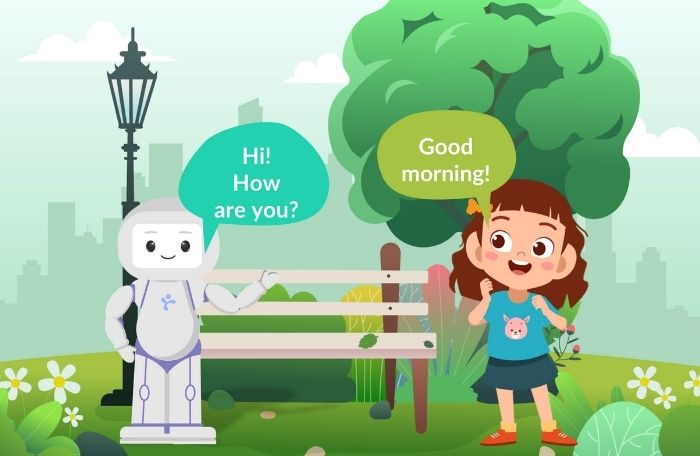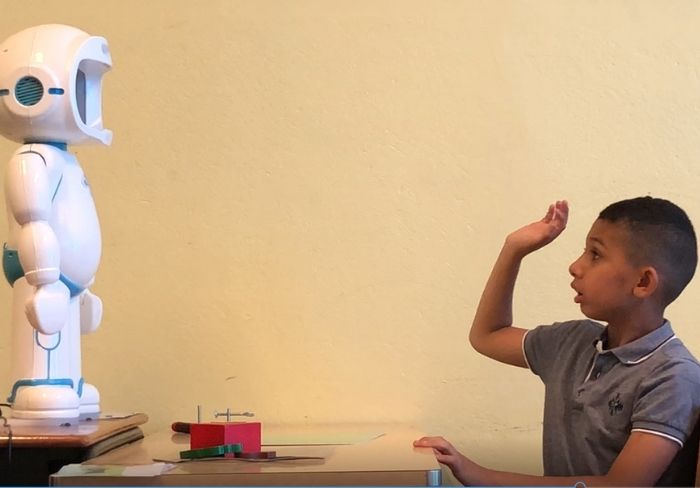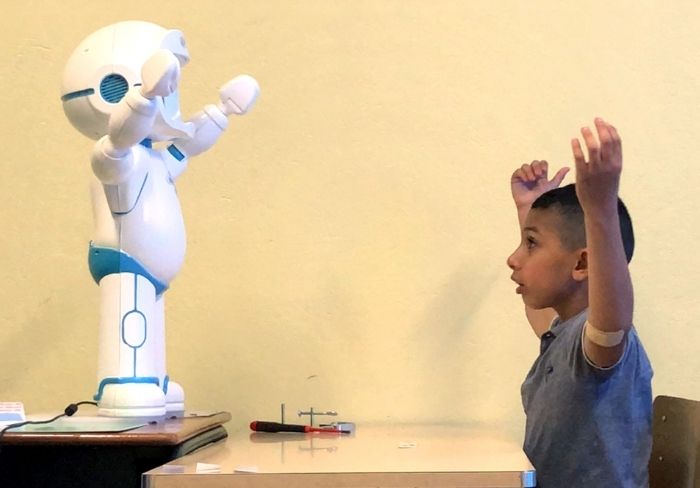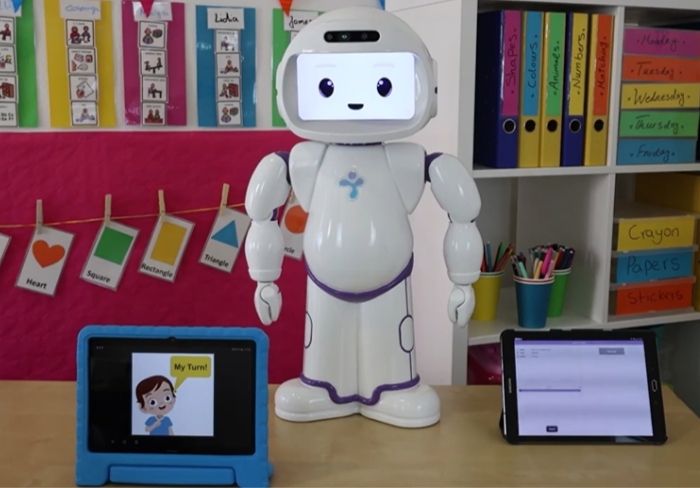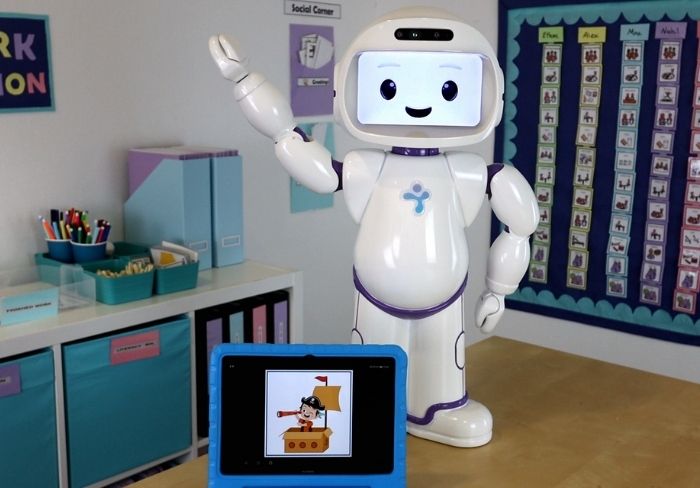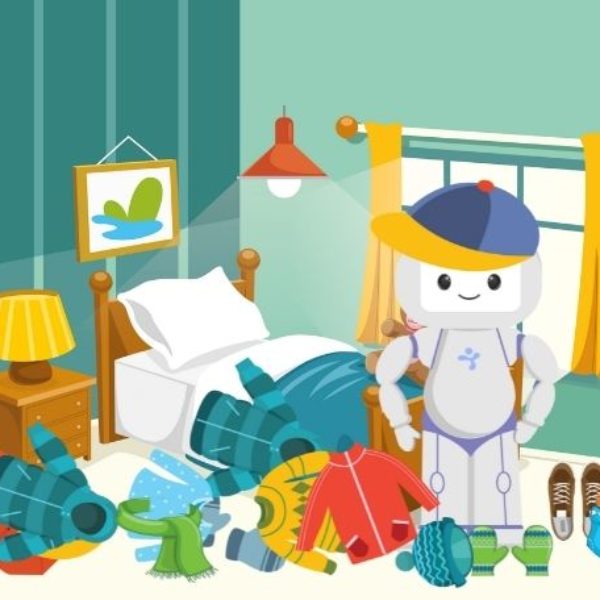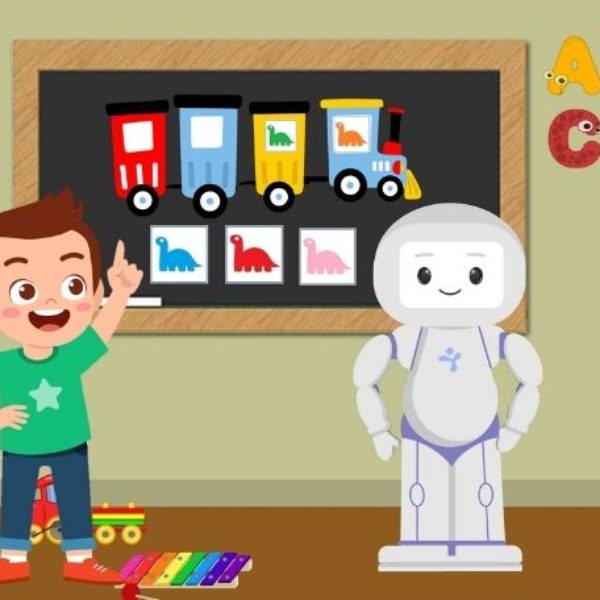Using this curriculum with QTrobot, students can learn a large variety of social skills from beginner to advanced about how to interact, ask questions, respond to questions and make conversations.
Topics Covered: Social skills in this curriculum are divided into 4 levels of difficulty, from beginner to advance, including joint attention, imitation, and basic greeting to advanced conversational skills such as how to start, maintain and finish a conversation
Number of Units: 25
Age range: 2-8 years of development
QTrobot Social skills curriculum for autism:
QTrobot social skills curriculum for autism and special needs education is a teaching tool developed to target a variety of social skills. Learning the social skills with QTrobot as defined in our curriculum, is geared towards obtaining more social success in an individual’s life. When social skills expand, the individual has more opportunities to interact with the environment and thus the quality of life can be improved.
Following categories are included in our social skills lesson plan:
- Beginner social skills, such as joint attention and answering basic questions
- Pre-intermediate social skills, such as requesting peers to play, sharing, and answering pre-intermediate questions
- Intermediate social skills, such as turn-taking, greetings, joining into play, requesting assistance
- Advanced social skills, such as maintaining a conversation, commenting, showing empathy and coping with teasing
The choice of skills targeted by this curriculum is based on the typical developmental milestones, most frequent social and communication deficits in individuals with autism and most important social skills needed to be successful in daily life.
Skills are taught step by step as the individuals progress and master the prerequisites. The social skills goals in this curriculum can be easily matched with children’s social skills IEP goals.
Both parents and special need educators or therapists can use QTrobot social skills curriculum to facilitate learning new social and communication skills in children with autism. QTrobot makes the learning interactive and supports the triangular interaction between the learner, the educator and the robot itself.
Below is the outline of the education lessons covered by the robot curriculum for teaching social skills:
Level 1:
- Unit 1- Joint Attention
- Unit 2- Basic Greeting
- Unit 3- Answering Basic Social Questions
- Unit 4- Imitating Peer Play
Level 2:
- Unit 1- Reciprocating Greetings from Peers
- Unit 2- Answering Advanced Social Questions
- Unit 3- Following Peer’s Directions
- Unit 4- Requesting Peers to Play
- Unit 5- Pretend Play
- Unit 6- Sharing Toys
Level 3:
- Unit 1- Advanced Greeting
- Unit 2- Answering Advanced Social Questions
- Unit 3- Pretend Play
- Unit 4- Turn Taking
- Unit 5- Joining in Play
- Unit 6- Requesting Assistance from Adults and Peers
- Unit 7- Initiating Simple Conversations
- Unit 8- Staying on The Topic
- Unit 9- Non-Verbal Cues
- Unit 10- Interrupting appropriately
Level 4:
- Unit 1- Initiating and Maintaining a Conversation
- Unit 2- Commenting
- Unit 3- Closing a Conversation
- Unit 4- Showing Empathy
- Unit 5- Coping with Teasing
